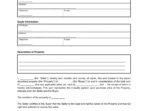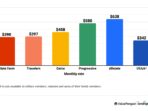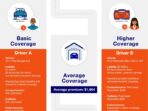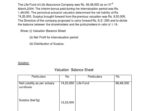Insurance Premium Kya Hai – The premium represents the price of a product or service that exceeds the intrinsic value of the article.
Overall, premiums are prices that exceed basic or intrinsic value. Regarding the price of protection losses, hazards or damages (e.g., insurance or option contracts). The word “premium” comes from Latin
Insurance Premium Kya Hai

Prices above a certain basic value are called premiums, and these assets or items are said to be operated at premiums. Assets can operate at a premium due to higher demand, limited supply or greater perception of future value.
Premium: Definition, Meanings In Finance, And Types
A premium bonus is a reward whose citation is higher than its nominal value or in other words; its cost exceeds the face amount in the bonus. Bonus can run at a premium price, however, their interest rates are higher than the current interest rate in the market.
The concept of bond price premium is related to the principle that the bonus price is inversely proportional to the interest rate; if fixed income securities are purchased at a premium, it means that the current interest rate is lower than the bonus coupon rate. Therefore, investors pay a premium for an investment that has a larger capital than the existing interest rate.
Risk premium means that the asset output of thermos without hot plates is expected to exceed the amount of hot water bottles. The risk premium of an asset is a form of compensation for investors. It represents payments made to investors tolerate additional risks in investments in Arisk’s free assets.
Similarly, capital risk premium refers to excessive performance in the Theestock market that provides risk-free interest rates. This excessive return compensates for the relatively high risk of capital investment by investors. The size of premiums varies depending on the level of risk in a particular portfolio. As market risks fluctuate, ITUSO will change over time.
Insurance Premium Defined, How It’s Calculated, And Types
The premium for an option is the fee for purchasing an option. These options give holders (owners) the right to purchase or sell underlying financial instruments at specific exercise prices, but are not obligated. The premium of the bonus reflects interest rate changes or risk profiles from the date of emissions. The buyer of an option has the obligation to purchase (call) or sell (PUT) (call) (call) (call) (call) (call) at an exercise price determined within a certain period of time.
The premium paid is its intrinsic value plus the time value; options for longer expiration are always higher than structures with shorter maturity than structures. Market volatility and how close the exercise price is to the market price in the current current will also affect the premium.
Elaborate investors sometimes sell an option (also known as writing options) and use the premiums received to pay for the purchase of the underlying tool or other options. Purchasing multiple options can increase or decrease the risk profile of a location, depending on how it is structured.

Insurance premiums include compensation received by the insurer to support events triggering coverage to support the risk of payments. Premiums can also include commissions for sales agents or runners. The most common coverage is cars, health and homeowners.
2025 में Lic Life Insurance Policy क्यों है जरूरी? जानें फायदे और फीचर्स!
Premiums are paid for many types of insurance, including health, owner and rental insurance. These payments must be sent in a regular manner or in time before the policy can continue. A common example of insurance premiums comes from auto insurance. The owner of the vehicle can ensure that the value of the vehicle is compared to the losses caused by accidents, theft, fire and other potential problems.
The owner usually pays a fixed premium amount in exchange for a guarantee from the insurer to cover any financial losses caused by the scope of the agreement. Premiums are based on risks associated with the insured and the required coverage.
Paying a premium usually means that the fees paid due to any perceived added value or supply and demand imbalance is higher than the current interest rate. To pay premiums, you can also refer more restricted payments on insurance policies or options contracts.
Synonyms for “advanced” include prizes, interest rates, dividends or bonuses. In insurance and option trading, it can be synonymous with “price”.
Lic New Yuva Term Plan
Advanced price is a marketing strategy that means that a tactically higher than the basic version of the product or a more basic version compared to the competition establishes the price of a specific product. The purpose of high price is to deliver higher quality or desirability than other options.
It requires writers to use major resources to support their work. These include white documents, government data, original reports, and interviews with industry experts. Where appropriate, we also refer to the original research of other approved editors. You can get more information on the standards we follow in the Edit Policy.
Average Price: Defining, calculating and negotiation platform with call cover Average Earnings ETF Average Earnings ETF A best choice for negotiation platform in July 2025, here are 4 options strategies you can currently try to get extra income bets

What does this mean when a bonus is sold at a premium? Is this a good investment? What is an expiration date? Definition and classification of bond appointments: Definition, how to read trade and examples of risk interest rates: Definition and impact on gold bond prices: Types and how to invest in Eurobonds: Definition, transmitter, advantages and disadvantages Pay the worst (YTW): What is the calculation of its kurtosis: Definition: Definition, type and importance and formula? What is an insurance award? Insurance premiums are the amount paid by a person to obtain the necessary insurance policy. For example, a company adopts a ten-year insurance policy for its factory. The insurance amount is $1,000,000. The company must pay a certain amount per year, such as $50,000 per year, which is determined based on the value of the insured.
क्या किसी ने नया बीमा प्रोग्राम लिया है? इसमें क्या झोल है?! 😂 🤔
Value depends on the type of insurance policy. It can include cars, health, home, life or other objects. Individual/business entities must pay monthly or global payments at the agreed premium frequency. In exchange for payment, insurance providers promise to repay policy buyers in unfortunate circumstances. Additionally, some premiums (such as health insurance) are tax-free/tax-free IRS.
John is 21 years old and has been smoking since his teenage years. His father, Mr. Steve, was worried about him and bought a $500,000 health insurance policy to protect him. The insurance provider provides the following information about the healthcare plan,
Olivia bought a new car and decided to buy vehicle insurance for him. The value of your car assets is $63,000. This is the interest rate for the company.
This is the money paid under an agreement between the insurance provider and the policy owner. The person in charge of the policy paid the amount agreed upon during the policy ownership period
Life Insurance: सावधान! इन 6 बड़े कारणों से जीवन बीमा क्लेम हो जाता है रिजेक्ट, नहीं मिलता एक पैसा
The person in charge of the policy can pay premiums even if they do not file a claim throughout the policy period
Minimum premium means higher deductibles. This is better for someone who needs no/minimum requirements for a year.
The minimum deductible results in higher monthly premiums. It allows policy holders to save money during treatment because insurance will pay most of the money.

Insurance is the umbrella that protects a benefit during these unpredictable times. Its advanced computing is a multi-layer program affected by several factors. Therefore, all the characteristics required to estimate the correct premium should be paid before purchasing a policy must always be considered.
Bharat Ncap And Car Insurance Premium Third Party Car Insurance
A: The policy title must pay the insurance premium to obtain the policy and preferred insurance. These payments are grouped by insurance companies to resolve any insurance claims. It is also the income of insurance companies.
A: According to the plan, companies evaluate many criteria before determining premiums. It includes age, health history, lifestyle, coverage, deductions, and more. For example, for health policies, companies can assess the age of the insured’s health status, pre-existing medical conditions, etc.
A: When you get insurance, you must pay the annual premium until the policy term expires. When someone is not paying before the due date, the company gives them a grace period. However, the lack of payments during the grace period leads to the policy period; the person in charge of the policy can no longer request the policy. Insurance premiums are the amount paid by an individual or company for an insurance policy. Insurance premiums are paid in policies covering a variety of personal and commercial risks. If the policy does not pay the premium, the insurance company can cancel the policy.
When you register for an insurance policy, your insurance company will charge you premiums. This is the amount you maintain an effective policy. The headlines of insurance policies can take advantage of serious options to pay for their insurance premiums. Some insurance companies allow policy managers to pay for insurance













